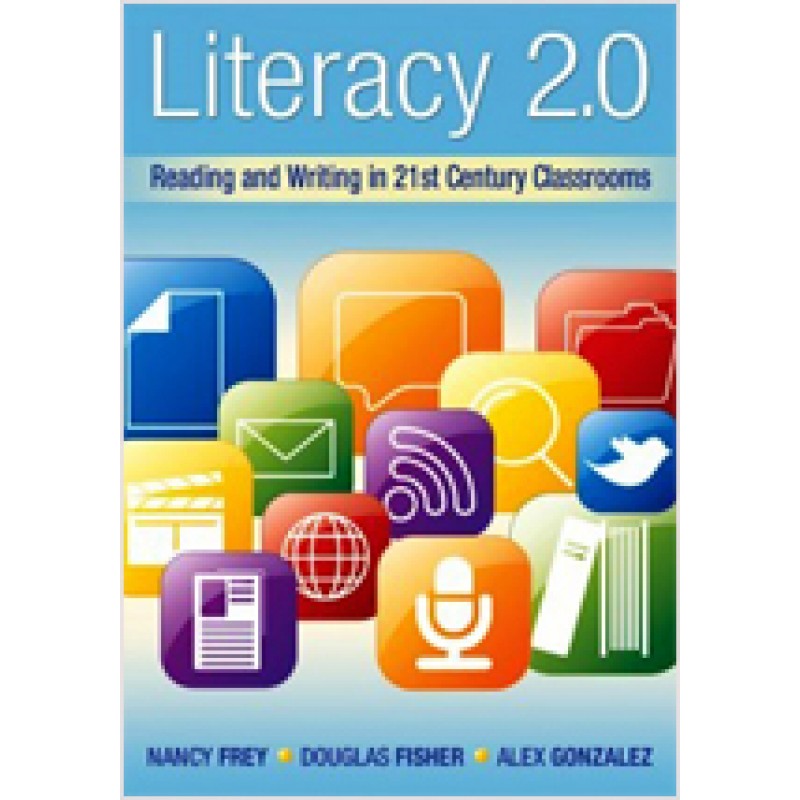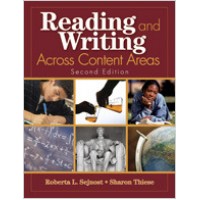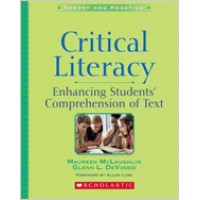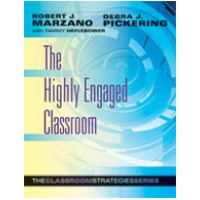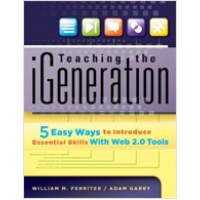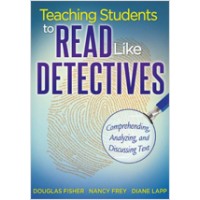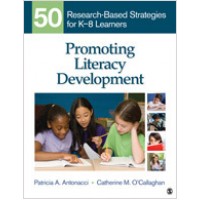Literacy 2.0: Reading and Writing in 21st Century Classrooms, June/2010
| Author(s) | Douglas Fisher, Nancy Frey, Alex Gonzalez |
| ISBN10 | 1935249800 |
| ISBN13 | 9781935249801 |
| Format | Paperback |
| Pages | 152 |
| Year Publish | 2010 June |
Synopsis
Literacy 2.0 is where traditional literacy and technological literacy meet. Students in the 21st century still need to develop the reading and writing skills that were the aim of literacy 1.0 instruction, but they must go beyond those skills and learn how to use technology for communicating and collaborating in new ways.
Benefit from the authors’ extensive experience in secondary literacy 2.0 classrooms. Discover precisely what students need to be taught to become proficient in the literacies associated with information and communication technologies. The book begins with a general instructional model and then delivers the specific teaching skills related to acquiring, producing, and sharing information. These skills include using search engines efficiently, evaluating information found on websites, avoiding plagiarism, communicating with a wide audience, working collaboratively, and creating multimedia products. In a highly accessible style, the authors detail how to use the many tools and technologies they discuss and give numerous practical suggestions for classroom applications.
Benefits
- Defines literacy 2.0 as the new version of literacy 1.0, not as a replacement
- Identifies essential ICT (information and communications technology) skills
- Emphasizes the distinction between functions and tools
- Matches tools to their functions
- Explains how to use all the tools discussed
- Identifies numerous web-based resources
- Gives numerous examples of classroom activities, assignments, and collaborative projects that require the use of technology
- Includes examples of student work that reflect literacy 2.0 skills
- Provides “Chapter Tweets,” brief statements of the main ideas introduced in each chapter
About The Authors:
Douglas Fisher, PhD, is professor of language and literacy education in the Department of Teacher Education at San Diego State University and a classroom teacher at Health Sciences High and Middle College. He teaches preservice courses in literacy and English language learners, graduate courses in reading instruction and intervention, and doctoral courses in policy, research, and literacy. As a classroom teacher, Dr. Fisher focuses on English language arts instruction. He was director of professional development for the City Heights Educational Collaborative and also taught English at Hoover High School.
Dr. Fisher received an International Reading Association Celebrate Literacy Award for his work on literacy leadership. For his work as codirector of the City Heights Professional Development Schools, Dr. Fisher received the Christa McAuliffe award. He was corecipient of the Farmer Award for excellence in writing from the National Council of Teachers of English for the article, “Using Graphic Novels, Anime, and the Internet in an Urban High School,” published in The English Journal.
Dr. Fisher has written numerous articles on reading and literacy, differentiated instruction, and curriculum design. His books include Creating Literacy-Rich Schools for Adolescents, Checking for Understanding, Better Learning Through Structured Teaching, and Content-Area Conversations.
He earned a bachelor’s degree in communication, a master’s degree in public health, an executive master’s degree in business, and a doctoral degree in multicultural education. Dr. Fisher completed post-doctoral study at the National Association of State Boards of Education focused on standards-based reforms.
Nancy Frey, PhD, is a professor of literacy in the School of Teacher Education at San Diego State University. She also teaches classes at Health Sciences High and Middle College in San Diego.
Alex Gonzalez is the technology coordinator at Health Sciences High and Middle College in San Diego, California. He emphasizes forward thinking, convenience, security, and application when using technology in the classroom.

